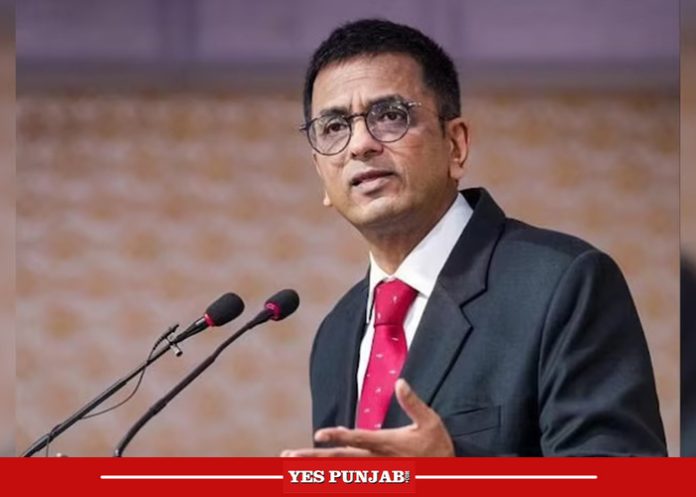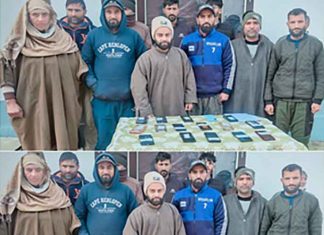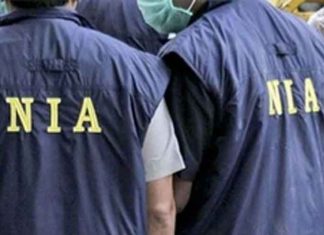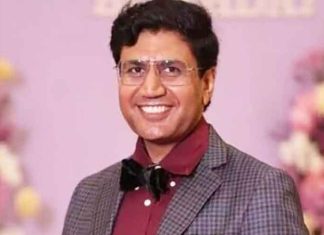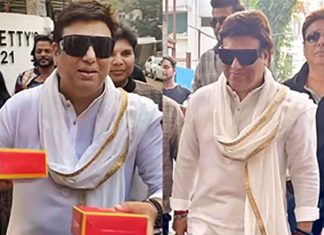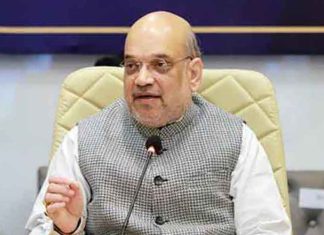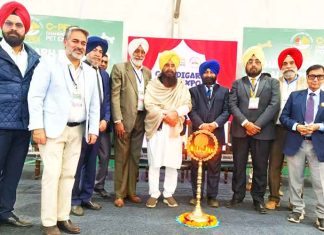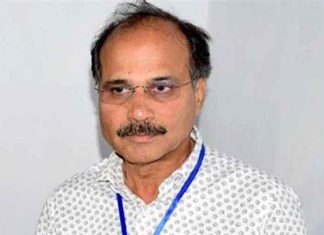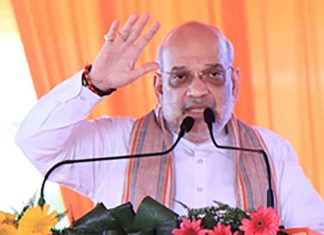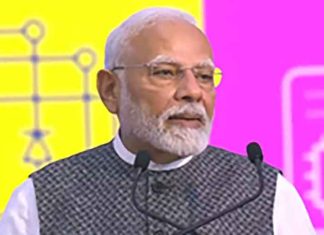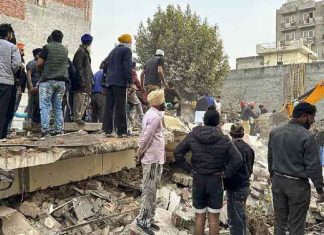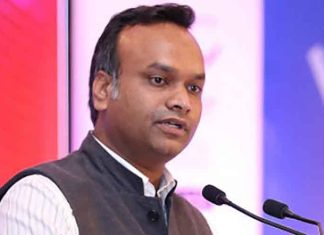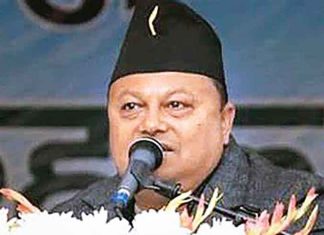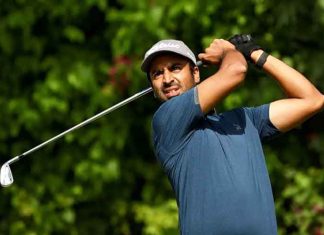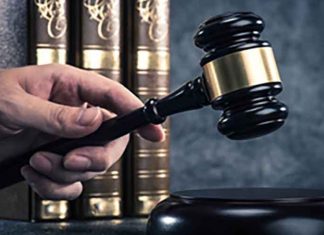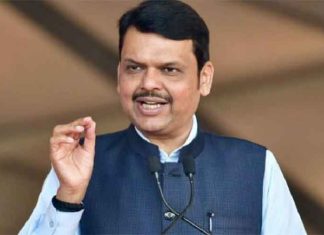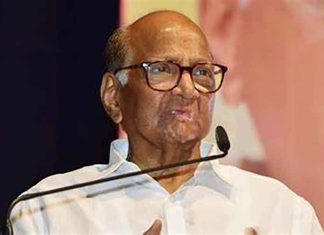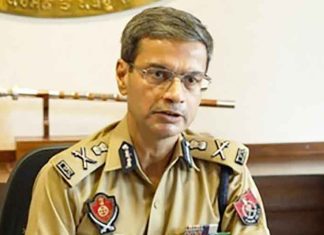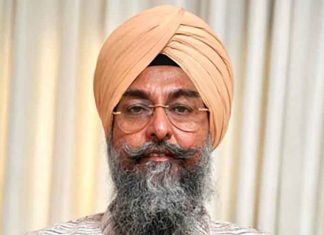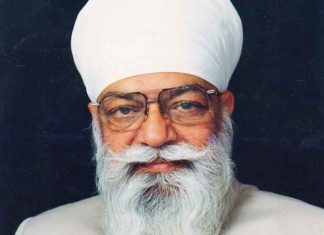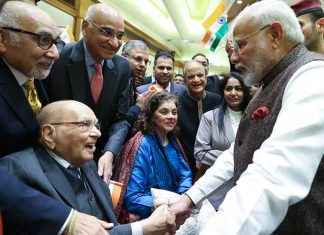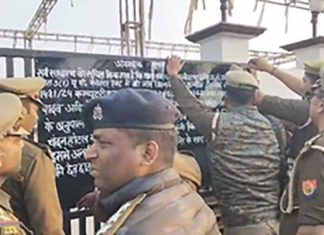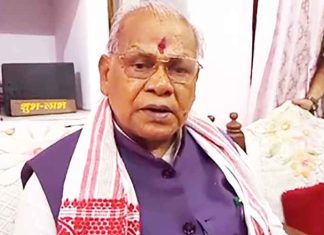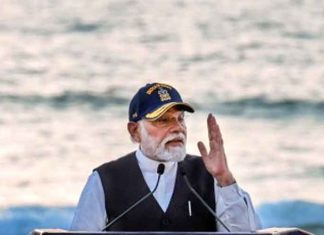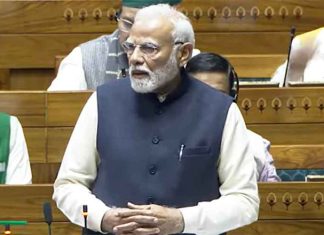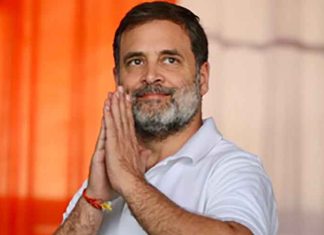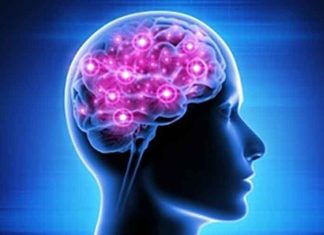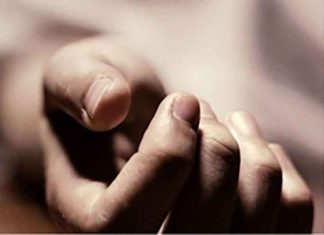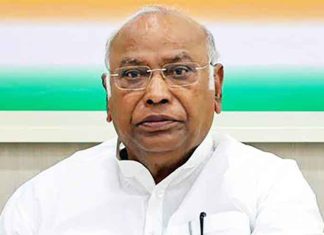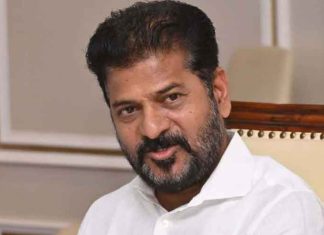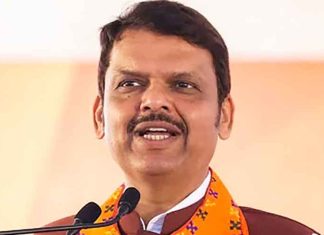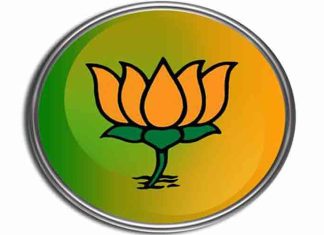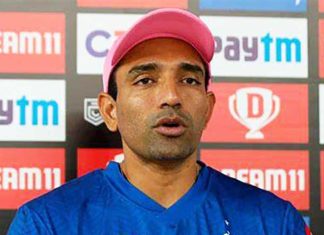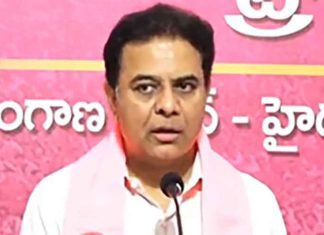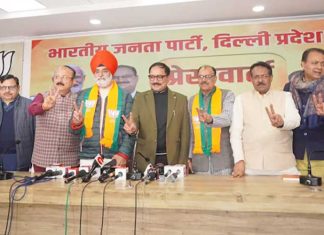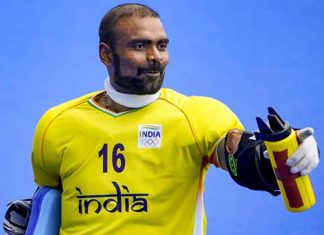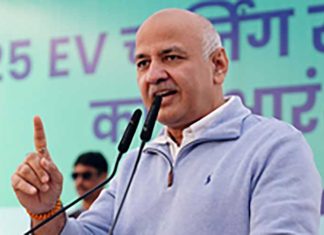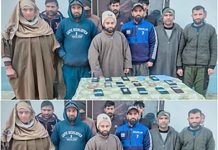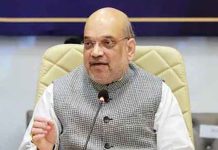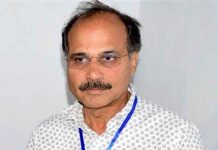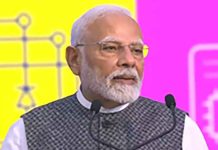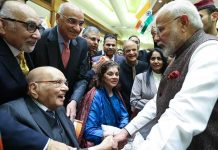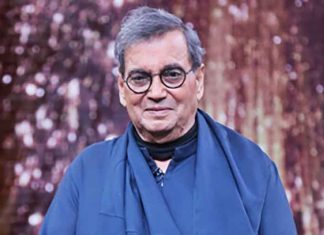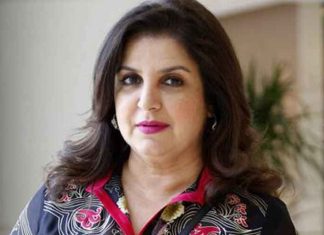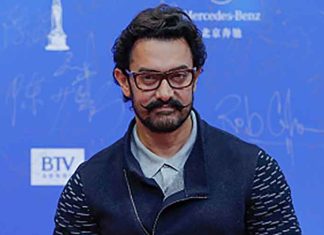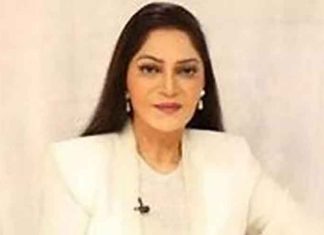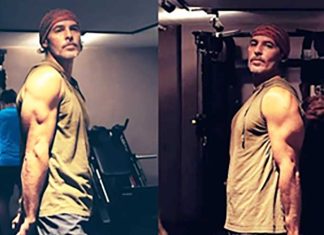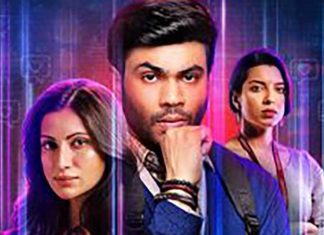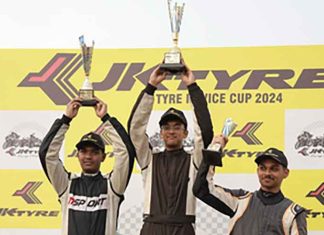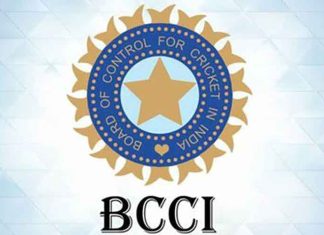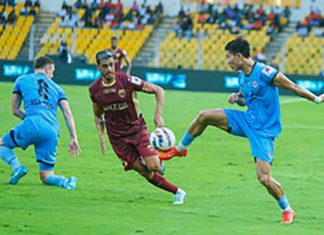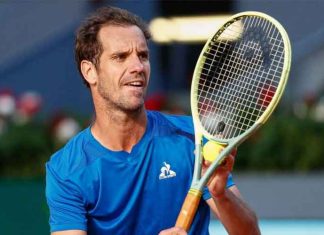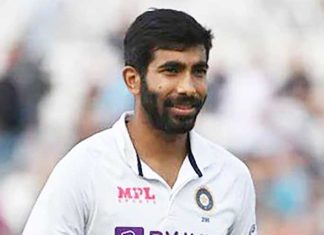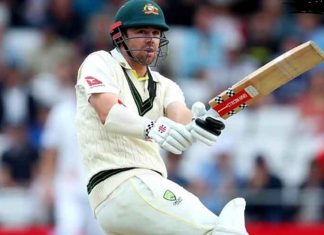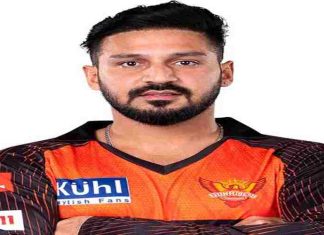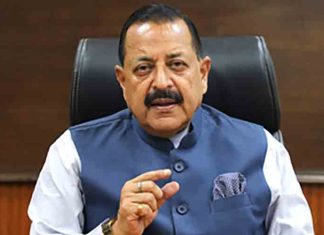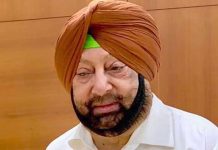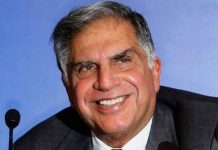New Delhi, Nov 10, 2024
After a two-year-long stint, Chief Justice of India D.Y. Chandrachud formally demits the highest judicial office of the country on Sunday.
Elevated as an apex court judge on May 13, 2016, he, in his over eight-year-long stint at the Supreme Court, pronounced several landmark judgements.
Article 370 revocation
A 5-judge Constitution Bench, headed by CJI Chandrachud, had upheld the revocation of Article 370, while ordering the Election Commission to take steps to conduct elections to the Jammu and Kashmir Assembly by September 30, 2024.
The bench, also comprising Justices S.K. Kaul, Sanjiv Khanna, B.R. Gavai, and Surya Kant, had left open the question of whether the Parliament can extinguish the character of statehood by converting a state into one or more Union Territories, but said that “restoration of statehood shall take place at the earliest and as soon as possible”.
In May, the apex court dismissed a batch of review pleas filed against the decision.
Same-sex marriage
A 5-judge Constitution bench headed by CJI Chandrachud had declined to read the gender-neutral “person” in place of “male” and “female” existing under the Special Marriage Act. It unanimously agreed that there exists no unqualified right to marriage and accepted the Centre’s proposal that a committee, headed by the Cabinet Secretary, be set up to examine what administrative steps could be taken to address basic social benefit concerns relating to same-sex couples.
The bench, also comprising Justices Khanna, Hima Kohli, B.V. Nagarathna, and P.S. Narasimha, left it to the legislature to take a call on enacting the marriage equality law. It had asked the Union and state governments to ensure that the LGBTQ+ community is not discriminated against on the basis of their sexual orientation and queer individuals are not refused access to any goods or services.
Non-consensual unnatural sexual acts in BNS
A bench, headed by CJI D.Y. Chandrachud, refused to entertain a public interest litigation (PIL) seeking criminalisation of non-consensual unnatural sex, sodomy, and bestiality in the new Bhartiya Nyay Sanhita (BNS), like the IPC, saying that the apex court cannot compel the legislature to classify a particular act as a criminal offence but granted liberty to the petitioner to make a representation before the Union government.
Electoral bonds
A five-judge Constitution Bench, headed by CJI Chandrachud, had struck down the electoral bonds scheme, saying that denying voters the right to know the details of funding of political parties would lead to a dichotomous situation and the funding of parties cannot be treated differently from that of the candidates who contest elections.
In a unanimous verdict, the Bench, also comprising Justices Gavai, Khanna, J.B. Pardiwala, and Manoj Misra, had directed the State Bank of India to forthwith stop the issuance of electoral bonds and ordered the Election Commission to publish, on its official website, the details of the political parties which have received contributions through electoral bonds since April 2019.
Subsequently, a bench headed by the CJI declined to entertain a PIL seeking a SIT probe under the supervision of a retired apex court judge into an alleged scam in poll financing using electoral bonds.
UP Madarsa Act
A bench, headed by CJI Chandrachud, set aside the Allahabad High Court ruling which had struck down the Uttar Pradesh Board of Madarsa Education Act, 2004, which had held that the madarsa education was bound to be struck down for violation of the basic structure and principles of secularism.
The Bench, also comprising Justices Pardiwala and Misra, held the Madarsa Education Act “unconstitutional” to the extent it regulates higher education in conflict with the UGC Act, and held that Article 21-A of the Constitution and the Right of Children to Free and Compulsory Education (RTE) Act, 2009 have to be read consistently with the right of religious and linguistic minorities to establish and administer educational institutions of their choice.
AMU minority status case
In a 4:3 decision, a seven-judge Constitution Bench headed by CJI Chandrachud overruled its 1967 five-judge bench verdict which had laid down that Aligarh Muslim University, being a Central varsity, cannot claim to be a minority institution.
“The view taken in the 1967 Azeez Basha case that an educational institution is not established by a minority if it derives its legal character through a statute is overruled,” it ruled.
The majority opinion, concurred by Justices Khanna, Pardiwala, and Misra, added that a regular Bench should decide the question of the minority status of the AMU and the correctness of the Allahabad High Court’s 2006 order, striking down the 1981 amendment conferring minority status on the varsity, in view of the principles laid down in its latest judgment. Justices Surya Kant, Dipankar Datta, and S.C. Sharma wrote separate and dissenting opinions.
MPs/MLAs prosecution for bribery
In its unanimous verdict, a 7-judge Constitution Bench headed by CJI Chandrachud overruled a 1998 judgment granting immunity to lawmakers from criminal prosecution for accepting bribes to make a speech or vote in the Parliament or state legislatures.
‘Quota within quota’ permissible
A 7-judge Constitution Bench judgment, headed by CJI Chandrachud, held that sub-classification within Scheduled Castes (SCs) and Scheduled Tribes (STs) would be permissible for providing benefits of affirmative action. It suggested the application of the “creamy layer” principle for availing quota benefits, but with a caveat that while providing for sub-classification, the government would not be entitled to reserve 100 per cent of seats available for SCs/STs for a particular sub-class to the exclusion of other castes in the List.
In a 6:1 decision, it overturned its 2004 judgment, which had ruled against giving preferential treatment to certain sub-castes within SCs “as the members of the reserved category groups form a homogeneous class incapable of further regrouping or classification”.
Caste-based division of labour in prisons
A bench headed by CJI Chandrachud held it unconstitutional the practice of employing “lower caste” jail inmates in cleaning and manual scavenging work in prisons. The Bench, also comprising Justices Pardiwala and Misra, directed that the “caste” column and any references to caste in prisoners’ registers inside the prisons be deleted in the prison manuals and related laws.
Effective implementation of Prohibition of Child Marriage Act, 2006
A bench, headed by CJI Chandrachud and comprising Justice Pardiwala and Mishra, said that child marriage deprives children of their agency, autonomy and right to fully develop and enjoy their childhood. It issued a slew of directions for the effective implementation of the Prohibition of Child Marriage Act, 2006, including ordering the state governments and Union Territories to appoint officers solely responsible for discharging the functions of Child Marriage Prohibition Officers (CMPOs) at the district level.
Section 6A of Citizenship Act
A five-member Constitution Bench, headed by CJI Chandrachud, upheld the constitutional validity of Section 6A of the Citizenship Act, 1955, which was inserted to give effect to the Assam Accord and formed the basis of the National Register of Citizens (NRC) in Assam in 2019.
Interpretation of Article 39(b) of the Constitution
A seven-judge Constitution Bench, headed by CJI Chandrachud ruled that not every resource owned by an individual can be considered a “material resource of the community”, merely because it meets the qualifier of “material needs”.
The bench, also comprising Justices Hrishikesh Roy, Nagarathna, Sudhanshu Dhulia, Pardiwala, Misra, Rajesh Bindal, S.C. Sharma and A.G. Masih, was dealing with questions as to whether the term “material resources of the community” in Article 39 (b) include privately owned property and whether laws intended to achieve this provision’s objective of redistributing material resources for the “common good” be exempted from legal challenges based on violations of fundamental rights.
While Justice Nagarathna authored a separate but partially concurring opinion, Justice Dhulia penned down a dissenting judgment.
NEET-UG 2024
Refusing to order a fresh exam, a bench headed by CJI Chandrachud observed there was no systematic leak of the question paper of the NEET-UG 2024 examination.
Adani-Hindenburg controversy
A bench, headed by CJI Chandrachud, refused to form any SIT or group of experts to conduct the investigation in the Adani-Hindenburg controversy and said the facts of the case did not warrant a transfer of investigation from the SEBI, holding that reports prepared by third-party organisations such as the Organised Crime and Corruption Reporting Project (OCCRP) and Hindenburg Research cannot be regarded as “conclusive proof”.
Manipur violence
A bench headed by CJI Chandrachud took suo moto cognisance of the disturbing viral videos where two tribal women were paraded naked and sexually assaulted in Manipur and set up a committee comprising three woman judges tasked with collecting information related to violence against women in Manipur as well as monitoring the conditions at relief camps and deciding on compensation to victims.
LMV licence holders need no separate endorsement to drive light transport vehicles
A five-judge Constitution Bench, headed by CJI D.Y. Chandrachud, reiterated that Light Motor Vehicle (LMV) licence holders do not require any separate endorsement to drive a transport vehicle of the LMV class if the gross vehicle weight is under 7,500 Kg.
Cases against MPs/MLAs
A bench headed by CJI Chandrachud directed Chief Justices of all High Courts across the country to register suo moto cases to monitor the expeditious disposal of criminal cases pending against MPs and MLAs, and a special bench to be formed in every High Court will issue continuing directions to curb the criminalisation of politics and may seek assistance from the Advocate General and other officers of the state government.
Recruitment rules cannot be amended midway
A Constitution Bench, headed by CJI Chandrachud, reiterated that recruitment rules cannot be amended after the selection process has commenced, unless provided otherwise in the extant rules or the recruitment advertisement, and if a change in eligibility criteria is permitted under rules or advertisement, it will have to satisfy the test of non-arbitrariness.
Appointment of arbitrators in public-private contract
A 5-judge Constitution Bench, headed by CJI Chandrachud, ruled that the unilateral appointment of arbitrators by a government entity in a public-private contract violates Article 14 of the Constitution, as since the activities of the government have a public element, it is incumbent upon the government to ensure that it enters into a contract with the public without adopting any unfair or unreasonable procedure.
The majority opinion, concurred by Justices Pardiwala and Misra, held that the principle of equal treatment of parties applies at all stages of arbitration proceedings, including in the appointment of arbitrators.
In separate opinions, Justice Roy opined that the independence and impartiality of the arbitrator must be examined within the statutory framework of the Arbitration Act and public law and constitutional principles should not be imported into it, while Justice Narasimha said that arbitration agreements enabling one of the parties to unilaterally constitute an arbitral tribunal do not inspire confidence of independence and after scrutinising these, the court can hold them to be invalid.
Unstamped arbitration agreements valid in law
In a unanimous decision, a 7-judge Constitution Bench, headed by CJI Chandrachud, overruled its earlier decision that an arbitration agreement would be invalid or void ab initio if the underlying contract was not stamped as per the relevant Stamp Act, ruling that non-stamping or insufficient stamping does not render an agreement void but merely makes it inadmissible in evidence, and non-stamping or insufficient stamping of an agreement is a curable defect under the Indian Stamp Act.
Review of 2021 Canon India judgment
A bench, headed by CJI Chandrachud, allowed a petition seeking a review of the 2021 Canon India judgment, where it was held that the officers of the DRI who were not otherwise officers of customs, could not have been assigned as the “proper officers” under the Customs Act.
Decriminalisation of homosexuality
In the landmark 2018 Navtej Johar judgment, the top court unanimously declared Section 377 of the now-repealed Indian Penal Code (IPC) unconstitutional “in so far as it criminalised consensual sexual conduct between adults of the same sex” on a writ petition filed by social activist Johar and five others belonging to sexual and gender minority communities.(Agency)




